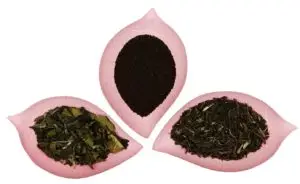Before I get to the topic of how tea inhibits iron absorption, let me start with a disclaimer. Since I’m not a dietician, all the information in this article is taken from medical studies. My sole aim is to distil it for you in a succinct and easy way to understand.
We have all heard about the numerous benefits of tea. But like most things in life, tea has its downside too.
The evidence
Several studies have proved that tea consumption in large quantities inhibits iron absorption. The first study came out in 1975.
The World Health Organisation considers iron deficiency ‘the most common and widespread nutritional disorder in the world’. According to the NHS, iron deficiency anaemia is caused by chronic blood loss and insufficient intake or poor absorption of iron from food; these reduce the number of red blood cells.
The substances that inhibit iron absorption are caffeine and tannins. Tannins give the tea its bitter flavour and its colour. The bitter and darker a tea is, the higher the possibility to contain lots of tannins.
Most sources claim that black tea has a high (or the highest) content of tannins, but they disagree on green tea. Some say that green tea has a high level of tannins, while others argue that it has the lowest level.
According to verywellhealth.com, a longer steeping time releases more tannins from the tea leaves. And lower-quality teas (the usual supermarket teabags) tend to have higher tanning levels, according to healthline.com.
Caffeine has a similar but lower impact, according to various studies.
What to do about it
That being said, should we reduce how much tea we consume? Far from that, unless you consume huge amounts of tea and you suffer from chronic iron deficiency, in which case you should consult your GP. But for most of us, the specialists advise us that the key to avoiding the hindering effect of tea on iron absorption is to drink the tea between meals, not with meals.
For vegans, like me, drinking tea close to meal time should be avoided because the absorption of non-heme iron from vegan sources can be inhibited by the tannins and phytates found in tea. Therefore, I personally do not drink tea 2 hours before and after a meal.


